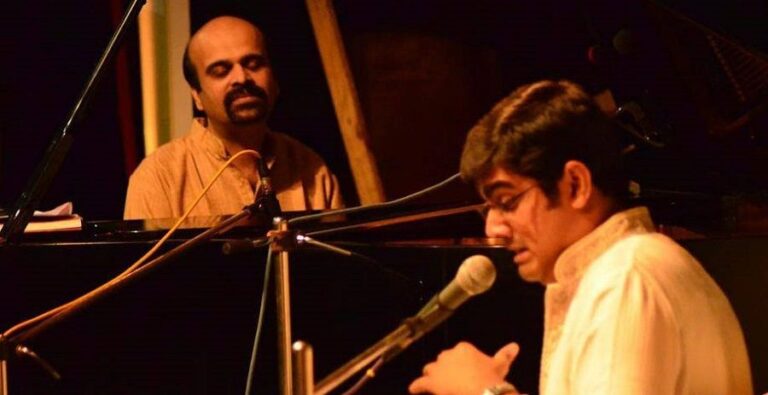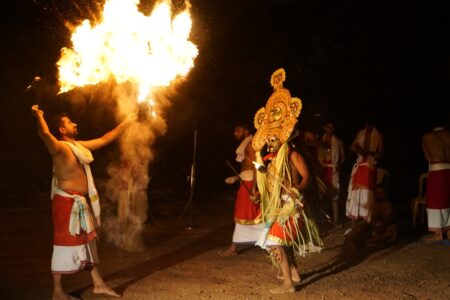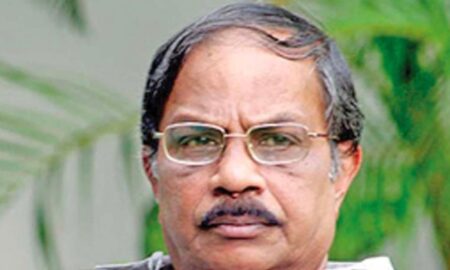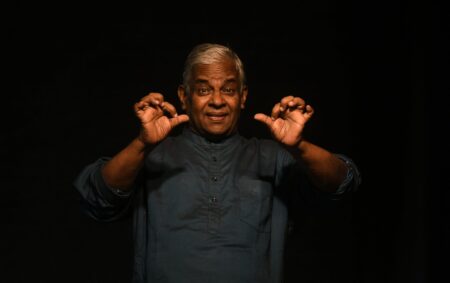Two new-age musicians —Anil Srinivasan on the piano and Sikkil Gurucharan on vocal — team up to add to the eclecticism of south Indian classical.
The entry of a new raga can be an initiation by the instrumentalist as well, even as vocals tend to lead the concert. Together, pianist Anil Srinivasan and singer Sikkil C Gurucharan lent a fresh layer of sensibility to Carnatic in what has been the duo’s artistic journey for one-and-a-half decades.
If co-option of a range of sounds and ideas keeps enriching the south Indian classical system, this piano-vocal show goes a step further. For, the percussive assistance, too, is unconventional: the khanjira and the tabla. Yet the format fairly sticks to that of a conventional kacheri, seldom posing as any kind of jugalbandi.
In the process happens a grand blend of the aesthetics of Western and Hindustani into what is primarily Carnatic. All this, at an 80-minute programme this week as part of a four-episode virtual festival being organised by a Delhi-based cultural organisation.
The 2005-founded Sunaad is midway its 2020 flagship event, not letting to be dumbed down by Covid-19. Titled ‘Musical Confluence’, the celebrations are in memory of Pt Ravi Shankar and Lalgudi G Jayaraman, coinciding with the centenary and 90th year of the legendary sitarist and violinist of the north and south respectively.
“Both were titans who spread the eminence of Indian classical music abroad. Today, we have a global audience for Carnatic and Hindustani,” notes veena exponent Saraswati Rajagopalan, who helms Sunaad. “The spirit of such imaginative maestros is what has nurtured the two idioms over the centuries. Our newest schedule, as has always been the case, features artistes of our northern and southern music.”
Sunaad’s Line-up
At the festival’s second concert, for instance, there was the peninsula’s khanjira played by BS Purushotham, along with Adithya Srinivasan on the tabla — the twin hand-drums more popular upcountry. At the opening round on December 12, Ravi Shankar’s disciple Shubhendra Rao gave a sitar recital with Rashid Mustafa Thirakwa on the tabla.
The coming weekend (December 26) will see a veena-sarangi jugalbandi by Saraswati Rajagopalan and young Murad Ali Khan. The concert will have Kumbakonam N Padmanabhan on the mridangam and Akram Khan on the tabla. In conclusion on January 2, 2021, will be a five-instrument ensemble led by mridangam stalwart Karaikudi R Mani. Lalgudi Jayaraman’s son GJR Krishnan (violin), Injikudi EM Subramaniam (nadaswaram), N Amrit (khanjira) and V Suresh (ghatam) will be the other artistes.
On December 19 in the series, pianist Anil displayed the capability of his instrument to meet the demands of Carnatic, known for its heavy reliance on microtones. In fact, he opened the concert titled ‘Songs in Praise’ with a brief introduction to Kamboji, a quintessential south Indian melody-type. Gurucharan took the cue with a stanza of the ancient Nalayira Divya Prabandham by Nammalvar, one of the 12 bhakti poet-saints of Tamil. The virutham segued into Brahma Kadigina, an Ammacharya composition in Mukhari, a raga with its fair share of slides.
The following Madhava Mamava (by Narayana Teerthar) sounded sprightly with Anil’s jamming, despite the raga Neelambari being generally soporific. In fact, the pianist playfully drifted onto the Hindustani Khamaj, running through a couple of lines from the 15th-century Gujarati bhajan Vaishnava jana to.
After a breezy but not short Brindavana Saranga session with swaraprastaram in Yayum Yayum, the pair took Lalitha for the centrepiece. The tanam segment of it saw Anil deflecting towards raga Saraswati. This was followed by a streak of Mohanakalyani, which first came from Gurucharan. The three ragas figured in the swara sequences after the pallavi, Ananta taranga rangashayee. Briefly, for once, Anil responded in raga Madhuvanti to Gurucharan’s Saraswati, and subsequently in Kuntalavarali.
Tabla’s entry
It was from the tanam the tabla came in. Aditya, with Purushotham, went on to present a taniyavarthanam in the eight-beat adi tala. A Lalgudi tillana in Sindhubhairavi and a Behag-raga Tiruppavai were the concluding items.
Anil and Gurucharan have brought out a dozen albums ever since they teamed in 2006. “That time it was fairly new and entirely innovative,” notes Chennai-based Anil, who did his higher studies in the piano from two leading US universities. He has done collaborative work with top artistes of the Carnatic and Hindustani systems besides popular music. “Over the years, we have performed across India and abroad.”
Gurucharan, 38 and five years younger to city-mate Anil, notes the piano does have the capacity to delineate ragas. “Not may know it can go well with Indian classical,” adds the vocalist. He also acted this year in Putham Pudhu Kalaai, an anthology film. Anil has also worked with Western masters and India classical dancers. Gurucharan is a grandson of yesteryear flautist Sikkil Kunjumani. Purushotham has learned also from mridangam great TK Murthy. Adithya has shared the dais with ghazal veterans Ghulam Ali and Hariharan.




